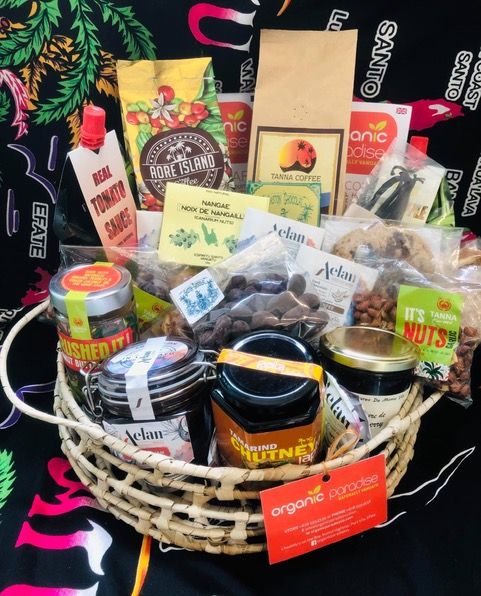Vanuatu
Made In Vanuatu
Elaine and Tony Wilson visit Organic Paradise in Port Vila to taste test some of the country’s finest locally grown produce.
July 18, 2020
Pacific Island Living
July 18, 2020It used to be that the only things notably Vanuatu-made were Tanna coffee and kava. But that changed gradually at first, from about 10 years ago and then it escalated dramatically in the past five years.
A classic example of this is the Organic Paradise store at Chantilly’s on the Bay complex in Port Vila, which sells only products made in Vanuatu.
Organic Paradise first opened its doors in 2014 in Wharf Road with a fairly modest collection of ‘Made in Vanuatu’ items.
Today it offers more than 500 products. A truly staggering result for this tiny republic. Proprietor Christophe Frocrain said the growth has been amazing and the further potential is quite exciting.
“We are currently buying from 75 local suppliers and we are working with products from nine Vanuatu islands,” he said.
Organic Paradise’s range of products includes spices and pepper, honey, coffee, kava, nuts, health products, oils, chocolates, vanilla, organic fruit and vegetables, organic fruit juices, dairy products, soap and beauty products, handicrafts and art.
“We have 15 exclusive products of our own and we are exporting to bio/organic stores, restaurant chefs and resellers in New Caledonia and France, and we even have a three Michelin star chef in France who buys some of our products, like the pepper,” said Christophe.
He said 60 per cent of the clients at the shop are local and 40 per cent are tourists.
“We are now selling seeds to farmers and are starting to sell a cross section of organic fruit and vegetables in the store and that will grow as more crops become available.
“We have free range eggs, lovely local quail and I have found a good chicken supplier, and we can sell our products cheaper than the supermarkets.
“I think we have helped a bit in the growth of local products because we have given an outlet for people to sell their products and I think people have always wanted to do it, they just did not have anywhere to sell from.
“Items like the vanilla, pepper, turmeric and other spices, plus the chocolates from the two local producers, are all truly world class.
“The growers are not using fertilisers or any chemicals and the quality and variety just continues to increase so there is no negative side to this at all and I’m very optimistic for the future.’’
Local food pioneer Votausi Mackenzie-Reur agreed wholeheartedly with Christophe’s enthusiasm and passion. She started Lapita Foods in 1999, specialising in Vanuatu local foods with coconut cookies and banana chips.
Today she has more than 30 products and even has her own farm in Santo.
“We take a product like nangai nuts and add different flavours to it, so we have roasted and sugar coated – you have to keep the customer excited,” she said.
Votausi said product development and marketing are now important components of her business.
“We were making manioc flour and it would just sit there, and now we call it gluten free flour and it sells. The market in Vanuatu has become more sophisticated and people are more receptive to healthy foods like we produce,” she said.
She said Lapita is rolling out new products every year as the demand is there. Restaurants around Vanuatu are also using more and more local ingredients in their dishes, with great effect.
At The Blue Marlin Club, widely regarded as the number one restaurant in Vanuatu, chef/manager Matt Lambert has Erakor baby clams as an entrée, with the clams straight out of the nearby lagoon.
But by far the most unusual Vanuatu dish is flying fox or fruit bat, served at L’Houstalet restaurant in Port Vila. Head chef/owner Clement Martinez has been cooking Civet de Roussette for 48 years which is flying fox marinated in red wine, garlic and herbs and served with rice.
He also has another house specialty of Natou aux champignons et a la crème or wild pigeon in a mushroom and cream sauce.
Clement said he sells about 80 fruit bat dishes per month, mostly to New Caledonia tourists.
“It is the same recipe from 48 years ago and the boys bringing in the bats and pigeons are the grandsons of the lads who first brought them to me,” he said
© 2024 Pacific Island Living Magazine all Rights Reserved
Website by Power Marketing